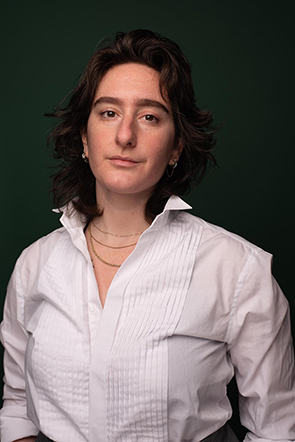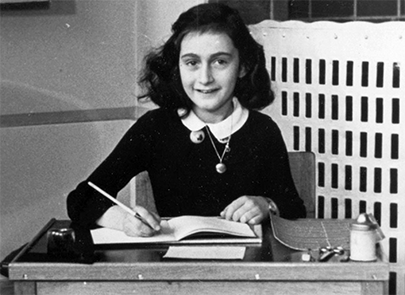When I was younger, still living at home with my mother, a cousin of hers whom she hadn’t seen for some years turned up at our door. The last time we’d heard from him, as I recall, was when I’d been only a child and his sister was dying. The whole family was transfixed on the moment when she slid from life into death during the minutes he’d taken from her bedside to buy something to eat from the hospital cafeteria. It is possibly the first time I ever experienced the drama of a death in the family, even though I’d never met this woman. Now, her brother stood at our door telling my mother he was going away for a time and that he had a chest he would like her to mind for him while he was gone. My mother obliged. It was wooden, painted a cream colour, and it sat beneath our loungeroom window for years as it became ever more apparent that the cousin was not returning for it. My mother and her sister eventually went looking for him, hoping to determine whether he had died or not. It appeared he had not. A couple of times they almost caught up with him, but he seemed determined to remain gone. So, my mother eventually opened his chest – she felt she had to finally do something with it – and found items of another life: a secret life he may have wished to leave behind. He had made my mother the custodian of his memory. He never returned to collect his possessions.
It’s these seemingly unrelated thoughts that reading can dredge from our memories. They are relevant to my personal reading of Yael Van Der Wouden’s first novel, The Safekeep, while most will wonder at this little piece of solipsism. But there’s a moment in the novel when Eva writes of a story that she has heard, which brought these memories back:
Malcha told me she knew a woman who came back from the camps and then went to the family who was safekeeping her things. They told her that they had sold everything. Then one day she walked by their house and looked inside and saw they were eating from her plates, and using her silverware, and the meal had been cooked in her oven dish … Malcha said they didn’t lie because they were embarrassed. They lied because they were never going to give them back.
It made me reflect on the idea of ‘safekeeping’: that my mother had been the custodian not only of her cousin’s things, but the memory of him; also, possibly, of a mystery he wished to leave behind.
The Safekeep is, in part, a novel about memory, about the past and how life’s paraphernalia can become imbued with significance; with our sense of identity and our connection with those we love. Isabel Dan Brave is a young Dutch woman living alone, apart from a housekeeper, Neelke, in a large house bought for her family by their Uncle Karel after the Second World War. She is neurotic and obsessively frets over her mother’s possessions. When she finds a fragment of one of her mother’s plates buried in the garden, she begins to worry about the honesty of Neelke, since this fragment of China is from her mother’s set of good plates she never uses except once a year on the anniversary of her mother’s death. Each year she uses one plate from the set and she eats alone. Isabel begins to wonder about other small items that seem to be missing, too. She is the keeper of her mother’s possessions and the curator of her memory. Her brothers, Louis and Hendrik, try to allay her concerns. They suggest she is merely misplacing things: spoons, a pencil box, a candle holder, a cake knife, a decorative tile, a napkin ring, etcetera. But it is difficult to placate Isabel. It does not help that she has heard a story of another family robbed by a servant.
Wouden’s narrative is tight and beautifully written. It captures the claustrophobic energy of Isabel’s personality and her obsessions, and the passionate emotions of love and family. Isabel is a vulnerable woman, happy to cut herself from the world and live alone in her mother’s house, which she now thinks of as her own. But Louis, the eldest sibling, has been promised the ownership of the house by their uncle, whenever he decides to marry and settle down with a family. At first, Isabel had expected to be moved out at any time, but as each year has passed, she has become more and more settled in the house. She has come to think of it as her own, since her brother’s endless affairs and short-term relationships have held the inevitable at bay. But now Louis has a new girlfriend, Eva, whom he brings with him to the house when the siblings have a get-together. And when Louis is unexpectedly called away for a conference overseas, the situation only gets worse for Isabel. Eva is reluctant to spend the next month alone with Louis’s housemate, Maurice, and so Louis insists, against Isabel’s will, that Eva spend the month with her. It is his house, after all, and the matter is settled. With Eva around, Isabel has even more reason to fret over her mother’s possessions. Eva is loud, she asks questions and she touches things. Meanwhile, Isabel digs her nails into her own wrists or cruelly pinches the skin on the back of her hand.
This is the basis of a story which draws the reader deeper and deeper into the past. Alongside this, against expectations, Isabel will discover love and intimacy for the first time ever. This novel has some truly steamy sex scenes that could make you blush. Wouden writes to her family in her Acknowledgements, “Thank you all for not talking to me about chapter 10, you’re very respectful people.” The love story is hot hot hot, but it is not gratuitous, nor is it cringeworthy. It evokes feelings that are overwhelming, all-consuming and mind-addling. This new relationship sets the novel on an entirely different track. Wouden writes scenes that are primal, rather than focussing on the risible plumbing-work of a badly written bodice ripper. Isabel’s awakening is truly revelatory, and she flowers in conjunction with her awakening understanding of her own family’s past, with some startling consequences.
Wouden couples Isabel’s sexual awakening with her growing insight into the meaning of her stewardship of her uncle’s home. Set fifteen years after the end of the war, Isabel’s preoccupation with her mother’s life and possessions recalls wider social issues prevalent in the Netherlands after the war. The Dutch government’s failure to properly help many Jewish families resettle after the war, dispossessed by Germany’s policies of rounding up Jews, becomes a primary concern for Isabel’s sense of identity and how she relates to her family’s past. Her struggle to remain in what she now thinks of as her own home and maintain possession of her mother’s belongings reflects the important connection between place and ownership with one’s identity and sense of worth.
To say anything more about the plot would be a disservice to the novel and its potential readers. But I will say that this is an insightful book which, in other hands, may have become bleak and ended darkly. Possessions are the currency of trust and betrayal. The safekeeping of them is an expression of respect, their relative value notwithstanding. This is, thankfully, a hopeful story. Wouden understands that darkness remains best confined to history. Her mother was Jewish and her father Dutch. Because of her looks, she grew up constantly being likened to Anne Frank, who died at the hands of Nazi Germany, though her diary survived her. It seems a dark legacy. But Wouden appears intent upon drawing out lightness and hope from the remains of the worst moments of Europe’s history. As a writer, she is a custodian of that history, and this novel memorialises the legacy of the past, while suggesting hope for the future. I really liked it.

 RSS Feed
RSS Feed Facebook
Facebook Instagram
Instagram YouTube
YouTube Subscribe to our Newsletter
Subscribe to our Newsletter




No one has commented yet. Be the first!